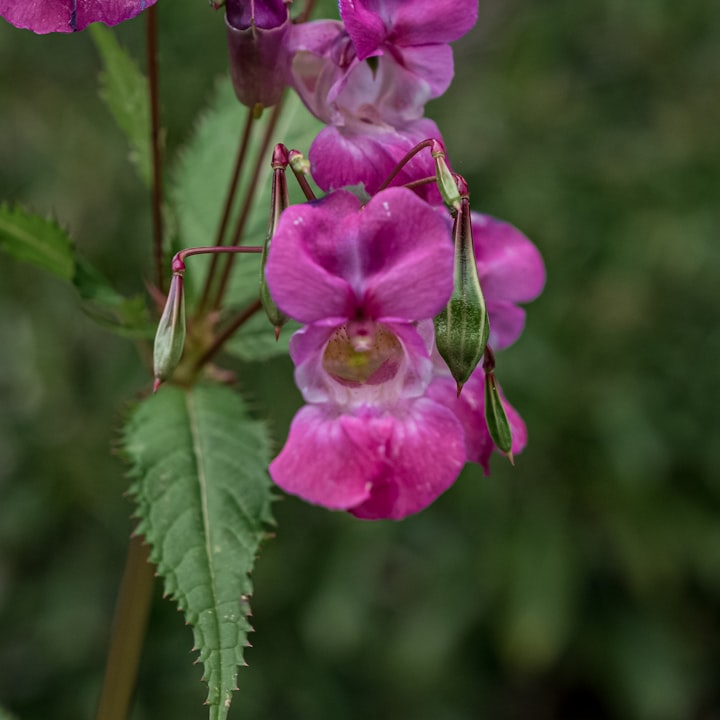Cinnamon Bark, Jasmine, Balsam Allergy
Allergic to smelling essential oils

Cinnamon Bark, Jasmine, Balsam Allergy
Allergic to smelling essential oils
Cinnamon Bark and Jasmine Allergy
Cinnamon Bark Allergy:
Cinnamon is a popular spice derived from the inner bark of trees belonging to the Cinnamomum genus. While it is generally considered safe for most people when used in small amounts as a spice, some individuals may be allergic to it. Cinnamon allergy is relatively rare, but it can cause allergic reactions in susceptible individuals.
Cinnamon Bark and Jasmine Allergy
Symptoms of a cinnamon allergy may include:
Skin reactions: Itchy or red skin, hives, or rash when the skin comes into contact with cinnamon.
Respiratory symptoms: Sneezing, runny nose, nasal congestion, coughing, or wheezing if cinnamon is inhaled.
Cinnamon Bark and Jasmine Allergy
Gastrointestinal issues: Nausea, vomiting, or diarrhea may occur if cinnamon is ingested.
Severe reactions are rare but could include anaphylaxis, a severe and potentially life-threatening allergic reaction that requires immediate medical attention.
Cinnamon Bark and Jasmine Allergy
Jasmine Allergy:
Jasmine is a fragrant flower often used in perfumes, aromatherapy, and teas. While jasmine allergies are relatively uncommon, some individuals may develop allergic reactions to this flower.
Cinnamon Bark and Jasmine Allergy
Symptoms of a jasmine allergy may include:
Skin reactions: Contact with jasmine may lead to skin irritation, redness, itching, or a rash.
Respiratory symptoms: Inhaling jasmine fragrance may cause sneezing, runny nose, nasal congestion, or difficulty breathing in sensitive individuals.
Cinnamon Bark and Jasmine Allergy
Eye irritation: Jasmine fragrance can sometimes irritate the eyes, leading to redness and watering.
Cinnamon Bark and Jasmine Allergy
As with any allergy, severe reactions can occur but are rare. If you suspect you have a cinnamon bark or jasmine allergy, it's essential to avoid exposure to these substances and consult with a healthcare professional for proper diagnosis and management.
Cinnamon Bark and Jasmine Allergy
If you experience severe or life-threatening symptoms such as difficulty breathing, swelling, or a rapid-onset reaction after exposure to either cinnamon bark or jasmine, seek immediate medical attention or call emergency services (911 in the United States).
Balsam Allergy
Balsam allergy refers to an allergic reaction to the resinous substance known as balsam. Balsam is a fragrant, sticky, and aromatic resin derived from various trees and plants. It is commonly used in the production of perfumes, essential oils, and medicinal preparations. However, some individuals may develop an allergic response when exposed to balsam.
Balsam Allergy
Symptoms of a balsam allergy can vary from mild to severe and may include:
Skin reactions: Contact with balsam can cause skin irritation, redness, itching, or a rash, particularly in individuals with sensitive skin.
Balsam Allergy
Respiratory symptoms: Inhaling balsam fragrance or particles can lead to respiratory symptoms such as sneezing, runny nose, nasal congestion, coughing, or wheezing.
Balsam Allergy
Eye irritation: Balsam fragrance or particles can sometimes irritate the eyes, leading to redness, watering, or itching.
Balsam Allergy
Gastrointestinal issues: In rare cases, ingestion of products containing balsam may result in nausea, vomiting, or diarrhea.
Balsam Allergy
Severe allergic reactions to balsam are uncommon, but they can occur, leading to anaphylaxis. Anaphylaxis is a severe and potentially life-threatening allergic reaction that requires immediate medical attention. Symptoms of anaphylaxis may include difficulty breathing, swelling of the face or throat, rapid or weak pulse, and a drop in blood pressure.
Balsam Allergy
If you suspect you have a balsam allergy or experience any allergic symptoms after exposure to balsam, it's crucial to avoid further contact with the substance and seek medical advice. An allergist or immunologist can perform specific tests to confirm the allergy and provide guidance on managing the condition.
Balsam Allergy
They may recommend antihistamines or other medications to alleviate mild symptoms and provide an epinephrine auto-injector for individuals at risk of anaphylaxis in severe cases.
Allergic to smelling essential oils
Being allergic to smelling essential oils is possible, as some individuals can be sensitive to the compounds found in these oils. Essential oils are highly concentrated extracts from various plants, and they contain a mix of aromatic chemicals. While they are generally considered safe when used properly and in moderation, they can cause allergic reactions or sensitivities in some people.
Allergic to smelling essential oils
Symptoms of an allergic reaction to smelling essential oils can include:
Respiratory symptoms: Inhalation of certain essential oils can lead to respiratory issues, such as coughing, sneezing, runny nose, nasal congestion, or difficulty breathing.
Allergic to smelling essential oils
Skin reactions: In some cases, exposure to certain essential oils can cause skin irritation, redness, itching, or a rash when the oil comes into direct contact with the skin.
Allergic to smelling essential oils
Eye irritation: Some essential oils may irritate the eyes, leading to redness, watering, or itching.
Allergic to smelling essential oils
It's essential to differentiate between an allergic reaction and a simple irritation. Some people may experience mild irritation or discomfort when exposed to certain strong fragrances, even without having a true allergy.
Allergic to smelling essential oils
If you suspect that you are allergic to smelling essential oils or have experienced any adverse reactions, it's important to discontinue use and avoid further exposure to those particular oils. You may consider consulting with a healthcare professional or an allergist to confirm the allergy and receive appropriate guidance on managing your condition.
Allergic to smelling essential oils
To minimize the risk of allergic reactions, consider the following precautions when using essential oils:
Allergic to smelling essential oils
Perform a patch test: Before using a new essential oil on your skin or inhaling it, conduct a patch test by applying a small amount to a small area of your skin and waiting for 24 hours to check for any adverse reactions.
Allergic to smelling essential oils
Dilute essential oils: If using essential oils on the skin, always dilute them with a carrier oil (such as coconut oil or almond oil) to reduce the concentration.
Allergic to smelling essential oils
Choose quality oils: Opt for high-quality, pure essential oils from reputable sources to minimize the risk of contamination or adulteration.
Limit exposure: Avoid prolonged or excessive exposure to strong aromas, and use essential oils in well-ventilated areas.
Always follow the recommended guidelines and usage instructions when using essential oils, and if you have any concerns about their use or potential allergies, consult with a healthcare professional.
I may receive compensation for any purchases made through affiliate links in this article.





Comments
There are no comments for this story
Be the first to respond and start the conversation.